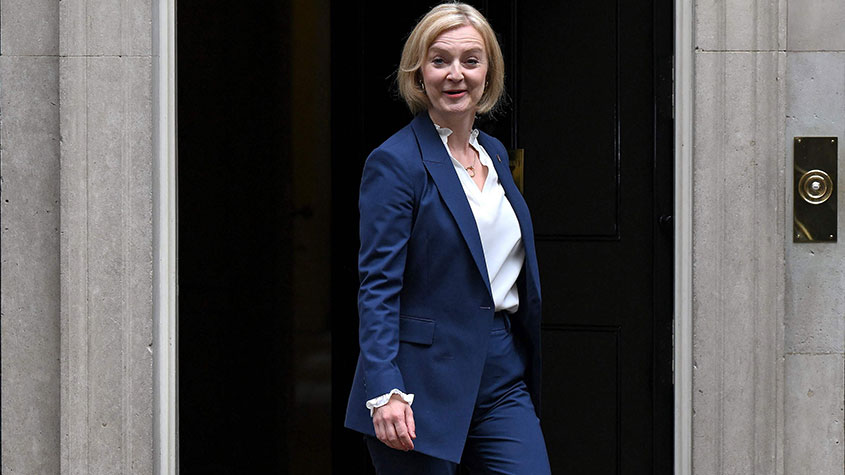Trading: Toast the rebound with Wetherspoon
Wetherspoon, the budget pub chain, is a disciplined and highly profitable operator whose shares now look reasonably priced.


Get the latest financial news, insights and expert analysis from our award-winning MoneyWeek team, to help you understand what really matters when it comes to your finances.
You are now subscribed
Your newsletter sign-up was successful
Want to add more newsletters?
The FTSE 100 index slumped by more than third between the start of the year and the trough at the end of March. Even after a modest rally, the market is still 20% off its peak, so many solid stocks that were previously too expensive are now priced much more affordably. One is the pub chain J D Wetherspoon (LSE: JDW).
Wetherspoon is not exactly a fashionable brand: it is widely deemed to be the Ryanair of its particular trade. However, just as Ryanair has dominated short-haul travel, Wetherspoon has been one of the few success stories in the pub retail trade. It has focused relentlessly on what its customers want: decent food and drink at an affordable price.
Unlike its competitors, it has avoided the perils of over-diversification, staying focused on its branded pubs and a handful of hotels instead of trying to branch out into other areas. Between 2014 and 2019 total sales grew by an average of 5% a year, while earnings per share more than doubled.
Try 6 free issues of MoneyWeek today
Get unparalleled financial insight, analysis and expert opinion you can profit from.

Sign up to Money Morning
Don't miss the latest investment and personal finances news, market analysis, plus money-saving tips with our free twice-daily newsletter
Don't miss the latest investment and personal finances news, market analysis, plus money-saving tips with our free twice-daily newsletter
Despite its continued success, the problem with Wetherspoon in recent years has been a very high valuation. It traded at a price/earnings (p/e) ratio of more than 20 while its competitors were far cheaper. As a result, I’ve avoided it in the past as too expensive, and even recommended that you short it in March 2017. However, given that it is now down by a third from its price on 1 January, it is much more affordable. It currently trades on a 2021 p/e of 15.
Of course, the big reason for this fall is that Wetherspoon, like all pubs and restaurants, is currently shut down as part of the lockdown and not due to re-open until July at the earliest. There is also a worry that even when it is allowed to open again, the combination of a weakened economy and a cautious public will lead to a dramatic fall in earnings over the next few years.
Ripe for a rebound
However, while revenue will clearly take a short-term hit from the ongoing closures, the increase in the number of people flocking to beaches and parks in the last fortnight suggests that there is plenty of pent-up demand for pubs.
Possible changes to the social-distancing rule (the safe gap could be reduced from 2m to 1.5m) and a surge in “staycations” this summer owing to travel restrictions could accelerate the recovery.
Wetherspoon has already doubled since its low in late March, so market confidence appears to be returning already. However, I think the shares have room to rise further.
I recommend going long on Wetherspoon at the current price of 1,114p at £4 per 1p. Put the stop-loss at 850p, compared with IG Index’s minimum of £1 per 1p, for a total downside of £1,056.
Get the latest financial news, insights and expert analysis from our award-winning MoneyWeek team, to help you understand what really matters when it comes to your finances.

-
 Do you face ‘double whammy’ inheritance tax blow? How to lessen the impact
Do you face ‘double whammy’ inheritance tax blow? How to lessen the impactFrozen tax thresholds and pensions falling within the scope of inheritance tax will drag thousands more estates into losing their residence nil-rate band, analysis suggests
-
 Has the market misjudged Relx?
Has the market misjudged Relx?Relx shares fell on fears that AI was about to eat its lunch, but the firm remains well placed to thrive
-
 Why you should keep an eye on the US dollar, the most important price in the world
Why you should keep an eye on the US dollar, the most important price in the worldAdvice The US dollar is the most important asset in the world, dictating the prices of vital commodities. Where it goes next will determine the outlook for the global economy says Dominic Frisby.
-
 What is FX trading?
What is FX trading?What is FX trading and can you make money from it? We explain how foreign exchange trading works and the risks
-
 The Burberry share price looks like a good bet
The Burberry share price looks like a good betTips The Burberry share price could be on the verge of a major upswing as the firm’s profits return to growth.
-
 Sterling accelerates its recovery after chancellor’s U-turn on taxes
Sterling accelerates its recovery after chancellor’s U-turn on taxesNews The pound has recovered after Kwasi Kwarteng U-turned on abolishing the top rate of income tax. Saloni Sardana explains what's going on..
-
 Why you should short this satellite broadband company
Why you should short this satellite broadband companyTips With an ill-considered business plan, satellite broadband company AST SpaceMobile is doomed to failure, says Matthew Partridge. Here's how to short the stock.
-
 It’s time to sell this stock
It’s time to sell this stockTips Digital Realty’s data-storage business model is moribund, consumed by the rise of cloud computing. Here's how you could short the shares, says Matthew Partridge.
-
 Will Liz Truss as PM mark a turning point for the pound?
Will Liz Truss as PM mark a turning point for the pound?Analysis The pound is at its lowest since 1985. But a new government often markets a turning point, says Dominic Frisby. Here, he looks at where sterling might go from here.
-
 Are we heading for a sterling crisis?
Are we heading for a sterling crisis?News The pound sliding against the dollar and the euro is symbolic of the UK's economic weakness and a sign that overseas investors losing confidence in the country.